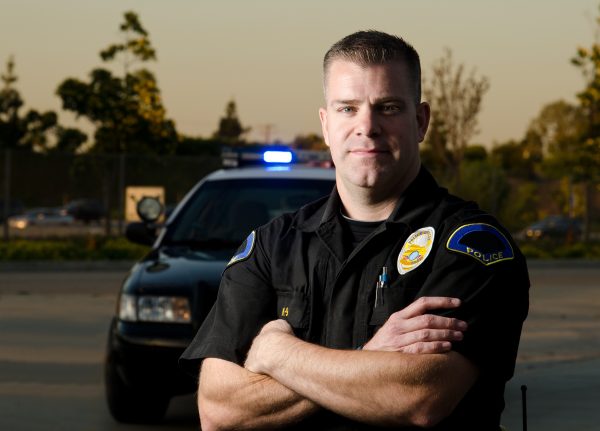 “America needs help right now, and Americans know it.”
“America needs help right now, and Americans know it.”
So said conservative columnist, Peggy Noonan in her Wall Street Journal column in early May.
“ It has been enduring for many years,” Noonan says, “a continuing cultural catastrophe—illegitimacy, the decline of faith, two family formation, child abuse and neglect, drugs, inadequate public education and so on. All this exists along side an entertainment culture on which the poor and neglected are dependent and which is devoted to violence, sex and nihilism.
“As a people, we are constantly and bitterly pitted against each other, and force-fed the idea of America as an illegitimate, ugly, racist and misogynous nation. Even honest love of country isn’t allowed to hold us together anymore.
“America to my mind is what Pope Francis said the church was: a field hospital after the battle. We are a beautiful and great nation but a needy, torn up one, in need of repair.
“You can’t see all the world’s weapons and all its madness and not know that eventually we will face a terrible day or days when everything will depend on our ability to hold together and hold on. “Maybe it will involve nuclear weapons, maybe an extended rolling attack on the grid, maybe bioterrorism. But it will be bad. And there will be deep stress and violence. The great question in those days, under that acute pressure will be–will we hold together?
The present environment is certainly disagreeable but not unprecedented. Still, we are spending our energy on petty party squabbles when there is important work to be done.
If, indeed, America is experiencing a cultural catastrophe with hard times ahead our representatives in Washington should be spending their energies finding ways to collaborate on keeping our nation safe . One way to do that is to invest in our individual communities which face the drug problem head on and non-stop with limited resources.
The Front lines
Hezekiah Stewart is no “stained glass preacher.”
He deals daily with the inner-city problems on the streets of Little Rock with limited resources fortified by his Christian faith.
Paul Greenberg, a Pulitzer Prize winning journalist, now retired from his job as editor at the Arkansas Democrat Gazette, wrote about Stewart in a column several years ago. It is worth revisiting as we seek solutions for the growing abuse of drugs accessible on our streets.
In his column, Greenberg said that Little Rock, like most other communities, has been slow to adequately confront the drug menace.
For openers, Greenberg wrote, “Stewart says sin is the problem.
“We can’t solve the problem with social programs or by legislative means,” Stewart says. “We cannot fund love, caring or compassion, and it’s difficult to fund understanding and kindness. That has to come from our Christian faith.
The deterioration of our society, Stewart maintains “is our inability to maintain a Godlike character and attitude.We have not taught our children the values, the fear and the respect of God.”
Watershed
Stewart founded Watershed with the Mt. Nebo African Methodist Episcopal church in 1978. Located in the former Gillam Park School building. It serves all people who come through its doors in Pulaski County and surrounding areas. He calls it “the world’s first social hospital.”
Watershed’s name is derived from the Biblical story of the Hebrew exodus. The Jewish people were transformed (a watershed event) from their suffering under bondage in Egypt when they crossed the Red Sea and later became the nation of Isreal.
Watershed seeks to transform the lives of those it serves, helping them to build lives of productivity and fulfillment in today’s world.
Its mission is “to feed the hungry, clothe the naked, house the homeless cheer the fallen, provide jobs.”
Watershed believes in helping people help themselves, building on their gifts and strengths to address their greatest needs. Its mission statement reads, “feeding the hungry clothing the naked housing the homeless, cheering the fallen, providing jobs tor the jobless, administering to those in crisis and encouraging economic development and self-sufficiency.
Safety net programs provide access to food and clothing, utility assistance, transportation and special out-reach services for persons with disabilities. Holiday food and toy baskets are a Watershed tradition.
Local initiatives
A paper, written by Manatt Health and funded by the Robert Wood Johnson Foundation (RWJF) in October 2017, explores how cities and counties have launched local initiatives to address the dual challenges created by the addiction, substance abuse coalition.
Manatt conducted interviews in 13 communities and found that successful efforts typically coordinated law enforcement, criminal justice, public health, health care, and social service resources to improve access to treatment, recovery, health, and social services for people with untreated serious mental illness and substance use disorders.
Community resources varied somewhat in how they addressed substance use disorders and serious mental illness, but successful efforts were marked by factors which included:
- Collaboration and alignment between city and county agencies and community-based health and social service providers;
- Access to health and social service benefits, including health insurance and social security, treatment and recovery services, housing, transportation, and other social supports;
- Care coordination and management, using case workers and counselors to develop individualized care and transition plans to help clients navigate and access public and private services;
- Community engagement and advocacy to overcome the stigma of serious mental illness and substance use disorder, and mobilize and coordinate public and private resources; and
Sustainable financing that leverages federal, state, local, and philanthropic funding streams.




Leave a Reply